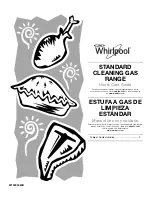
It is important that diesel-powered trucks are refueled
only with low-sulfur fuel. Use of fuels with higher-sulfur
content will affect the function of the emission
components and may cause reduced performance,
excessive smoke and unpleasant odor.
At a minimum, the diesel fuel you use should meet
specifications CAN/CGSB-3.517-2000 (Low Sulfur
Diesel) in Canada. In addition, the Engine Manufacturers
Association (EMA) has identified properties of an
improved diesel fuel for better engine performance and
durability (FQP-1A). Diesel fuels corresponding to
the EMA description could provide better starting, less
noise and better vehicle performance. If there are
questions about the fuel you are using, contact your
fuel supplier.
It is acceptable to use diesel fuel containing up to
5% biodiesel (B5), but the final blended fuel must meet
the same specification, CAN/CGSB-3.517-2000
(Low Sulfur Diesel) in Canada, as other fuels used in
your vehicle, and the biodiesel used for making this
fuel must meet the ASTM D6751-03 specification.
Biodiesel is produced from vegetable oils or animal
fat that have been chemically modified to reduce the
possibility of damage to your fuel system and engine.
Higher concentration (i.e., greater than B5)
biodiesel-containing fuels or the use of unmodified
bio-oils blended into diesel fuel at any concentration is
not recommended and could damage your fuel
system and engine. Such damage would not be covered
by your warranty. If there are questions about the
biodiesel-containing fuels you are using, contact your
fuel supplier.
Very Cold Weather Operation
Follow the instructions listed previously under the
heading “What Fuel to Use.”
Notice: Never use home heating oil or gasoline in
your diesel engine. They can cause engine
damage.
In cold weather, your fuel filter may become
clogged (waxed). To unclog it, move the vehicle to a
warm garage area and warm the filter to between
32°F and 50°F (0°C to 10°C). You will not need to
replace it. Additional information on the fuel filter follows.
5-4
















































